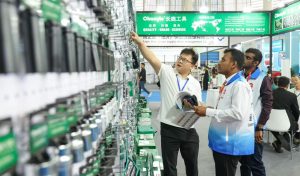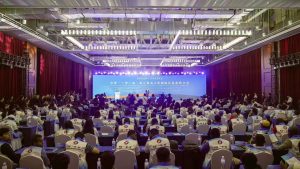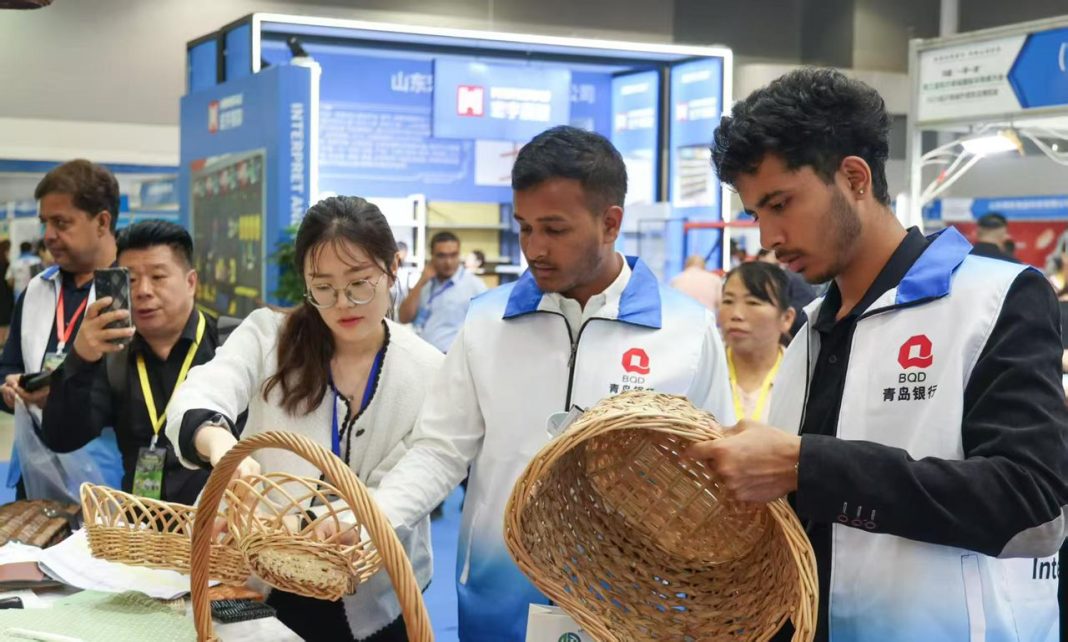By Mahnoor Makhdoom
The eastern Chinese city of Linyi, a cornerstone of China’s wholesale and logistics industry, has taken another major step toward global engagement with the opening of the 3rd Linyi Trade City International Sourcing Conference for Belt and Road Cooperation on October 10 in Shandong Province. The event underscores Linyi’s ambition to position itself as a central platform for trade, cooperation, and cross-cultural exchange under the Belt and Road Initiative (BRI).



This year’s conference, themed “Bridging the World, Sourcing Global Excellence,” marks the largest and most internationally diverse edition since the event began. It has drawn more than 2,000 international buyers from 99 countries and regions and 2,816 suppliers from across China. The massive exhibition area spans 350,000 square meters, with one main venue and 17 special sessions showcasing a wide range of products, including hardware, labor protection equipment, building materials, stationery, sports goods, daily necessities, small commodities, and even used cars.
Compared with the previous two sessions, this year’s conference is larger in scale, broader in scope, and richer in content. It closely follows emerging global trade trends, emphasizing two key objectives: promoting the “trade city going global” concept and helping enterprises expand their overseas presence. Beyond trade exhibitions, the event integrates a diverse set of activities such as economic and trade negotiations, platform promotions, tourism and cultural exchanges, customs policy briefings, and even international friendly football matches. This dynamic mix aims to combine business cooperation with cultural diplomacy, building a deeper foundation for people-to-people connections.
More than 20 parallel activities are being held alongside the main event, including the “Belt and Road” Economic and Trade Matching Conference, the Cross-border Going Global Conference, the Foreign Trade Premium Products Expo, and several regional cooperation seminars. Together, these activities seek to maximize the exhibition’s multiplier effect, deepen collaboration among participating countries, and create more tangible outcomes for Belt and Road trade.
Since its launch in 2023, the Linyi Sourcing Conference has developed into a significant platform that enables “Quality Chinese Products” to reach global markets while attracting “International Premium Products” to enter China. Over time, it has evolved into a new bridge for trade connectivity, a new platform for economic cooperation, and a new window for win-win partnerships under the Belt and Road framework. The conference has also become an important indicator of how Chinese cities are adapting to the globalization of commerce through innovation, openness, and digital transformation.
Linyi’s global presence continues to expand rapidly. Since the beginning of this year, the city has hosted 176 overseas exhibitions and trade missions across 36 countries, sending more than 2,450 enterprises and merchants abroad to explore new markets. Meanwhile, it has organized 51 business exchange events for visiting foreign merchants, attracting approximately 29,000 international participants interested in Linyi’s vast trade ecosystem. These efforts reflect the city’s growing confidence and capability in linking domestic industries with global opportunities.
To further consolidate its position, Linyi is advancing five key strategic projects: the Modern Logistics City, the Linyi Trade City International Trade Group, the Linyi International Trade Center, the “China Grand Market” Digital Platform, and overseas Linyi malls. Each of these initiatives is designed to enhance the city’s role as a modern trade hub—integrating logistics, technology, and international partnerships to drive sustainable growth.
As the 3rd Linyi Trade City International Sourcing Conference continues, it stands as a vivid symbol of how Chinese regional centers like Linyi are transforming into global trade engines. By “bridging the world” not only in words but in practice, Linyi is showing how traditional markets can evolve into international platforms for shared development, connecting businesses and communities across continents under the spirit of the Belt and Road Initiative.





